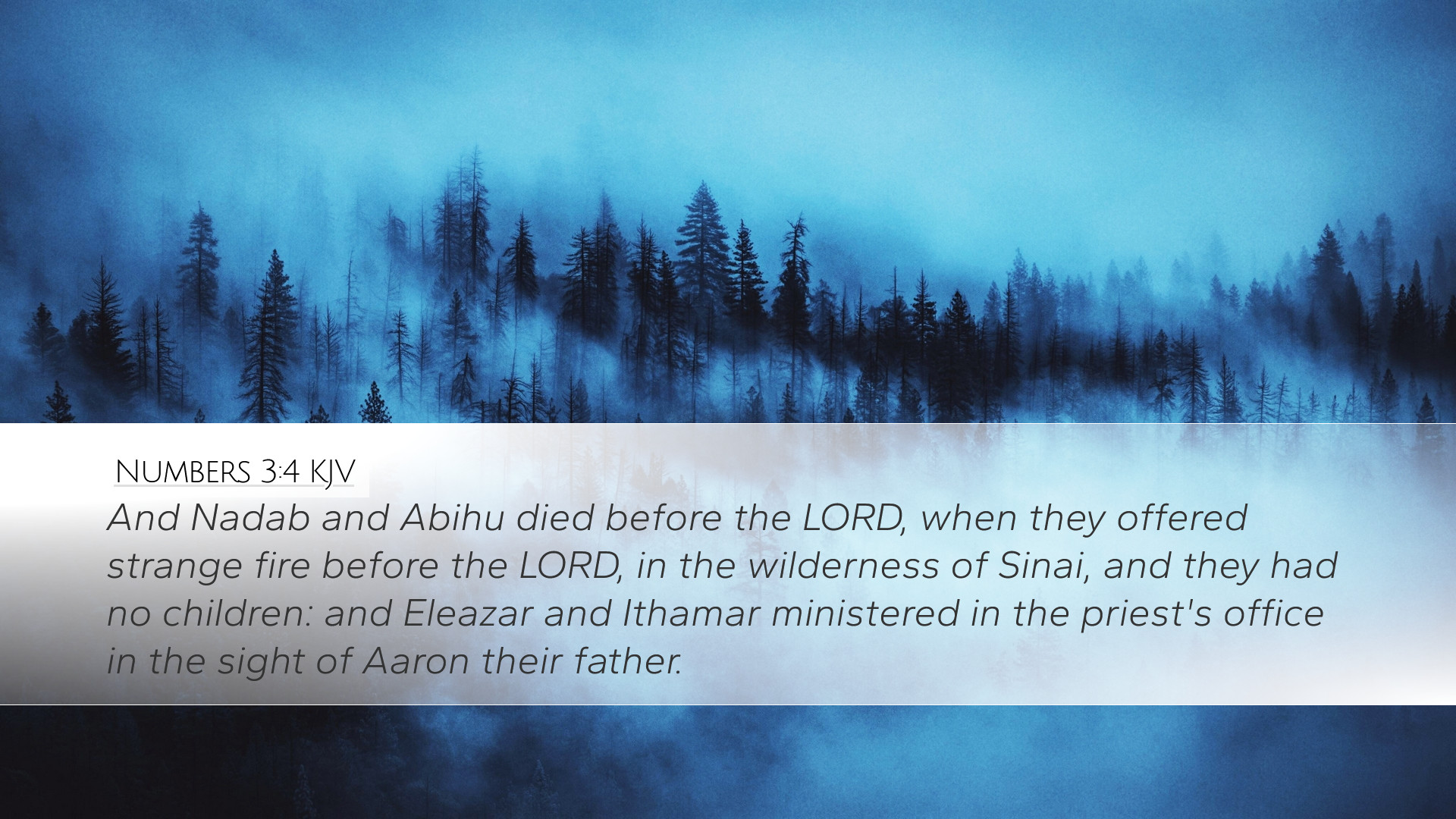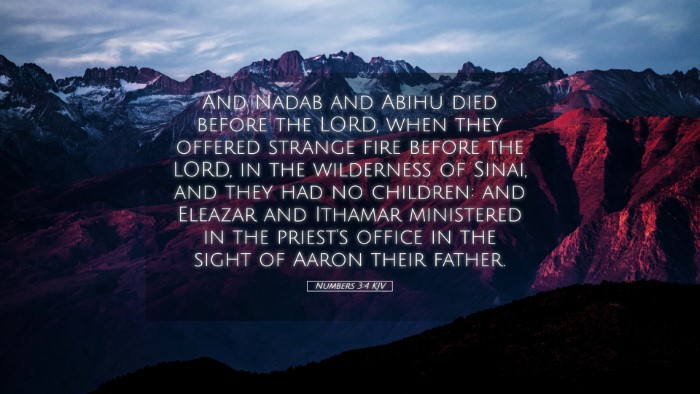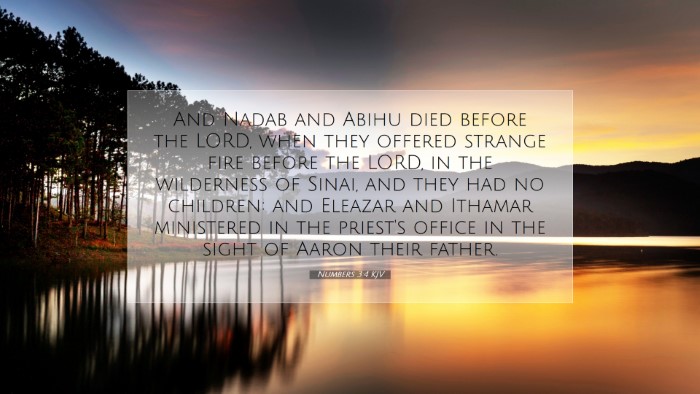Commentary on Numbers 3:4
Numbers 3:4 states: "And Nadab and Abihu died before the LORD, when they offered strange fire before the LORD in the wilderness of Sinai: and they had no children: and Eleazar and Ithamar ministered in the priest's office in the sight of Aaron their father."
Contextual Overview
The Book of Numbers is essential in understanding the historical context of the Israelites as they journey towards the Promised Land. Numbers 3:4 highlights a significant event concerning Nadab and Abihu, the two sons of Aaron, the high priest. Their failure in faithfully serving God had dire consequences and serves as a cautionary tale regarding worship and adherence to divine commandments.
The Death of Nadab and Abihu
The death of Nadab and Abihu is pivotal for understanding the seriousness of their transgression. According to Matthew Henry's Commentary, the “strange fire” they offered was not what God commanded, illustrating a critical principle regarding acceptable worship. Their death was direct evidence of God's judgment, emphasizing His holiness and the need for proper reverence in service.
Reasons for Their Punishment
-
Violation of Divine Command:
Both Albert Barnes and Adam Clarke indicate that Nadab and Abihu offered fire that was unauthorized. This was a direct contravention of God's specific instructions about sacrificial worship, showcasing the importance of adhering strictly to God’s precepts.
-
Irreverence in Worship:
Their actions denote a lack of fear of God, treating sacred responsibilities lightly. Henry posits that their behavior can be interpreted as a disregard for the seriousness with which divine worship must be approached.
-
Symbolic Representation:
Nadab and Abihu represent a failure to recognize the difference between the holy and the common, reflecting a dangerous familiarity with the sacred things of God. Barnes emphasizes this lack of distinction was a significant factor in their demise.
Theological Implications
Theologically, Nadab and Abihu's fate raises questions about God's holiness and the nature of worship. Adam Clarke highlights how this incident serves as a theological touchstone for understanding the gravity of approaching God without due reverence. The reaction of God towards their offering stresses that worship must conform to divine ordinances.
Consequences of Their Actions
The immediate consequence of their actions was death, a drastic and sobering outcome. Henry points out that their death serves as a potent reminder that worship is not to be conducted lightly. Following their death, Eleazar and Ithamar, Aaron's other sons, took over the priesthood, indicating that leadership and priestly duties were to be conducted with utmost seriousness.
Application for Today’s Believers
The narrative surrounding Nadab and Abihu provides significant lessons for contemporary worshippers. The principle of adhering to God’s word remains immensely relevant. Some applicable insights include:
- Worship Must Be God-Centered: Modern believers are reminded that worship should always be focused on God's glory rather than personal preferences.
- Obedience is Crucial: Adhering to biblical precepts in worship settings is vital, as failure to do so can lead to spiritual consequences.
- Reverence is Required: Worship must be approached with humility and reverence, recognizing the holiness of God.
Conclusion
In summary, Numbers 3:4 encapsulates a profound lesson on the nature of worship, the gravity of disobedience, and the need for reverence before God. The insights from Matthew Henry, Albert Barnes, and Adam Clarke provide a comprehensive understanding of the spiritual and theological ramifications of this narrative, reinforcing the importance of approaching God's holiness with utmost seriousness.


